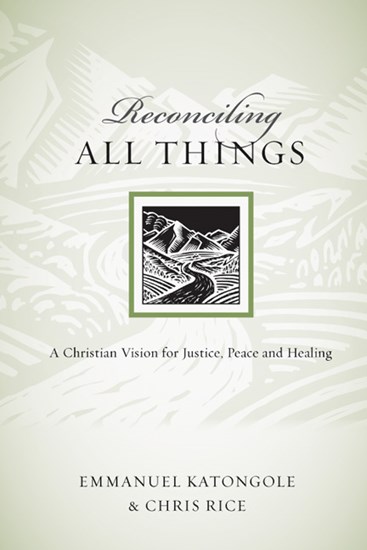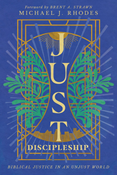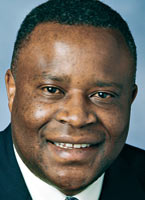
Christianity Today Book Award winner
Our world is broken and cries out for reconciliation.
But mere conflict resolution and peacemaking are not enough. What makes real reconciliation possible? How is it that some people are able to forgive the most horrendous of evils? And what role does God play in these stories? Does reconciliation make any sense apart from the biblical story of redemption?
Secular models of peacemaking are insufficient. And the church has not always fulfilled its call to be agents of reconciliation in the world. In Reconciling All Things Emmanuel Katongole and Chris Rice, codirectors of the Center for Reconciliation at Duke Divinity School, cast a comprehensive vision for reconciliation that is biblical, transformative, holistic and global. They draw on the resources of the Christian story, including their own individual experiences in Uganda and Mississippi, to bring solid, theological reflection to bear on the work of reconciling individuals, groups and societies. They recover distinctively Christian practices that will help the church be both a sign and an agent of God's reconciling love in the fragmented world of the twenty-first century.
This powerful, concise book lays the philosophical foundations for reconciliation and explores what it means to pursue hope in areas of brokenness in theory and practice.
"Reconciliation has become a popular buzz word. But I've learned there are no quick and easy fixes for a broken world. This book takes us deeper. It is fresh, biblical, practical, inspiring and full of hope. The authors themselves embody the vision our world needs--African and American, black and white, Uganda and Mississippi, Protestant and Catholic, joined in common ministry across divides. This book is for all those restless Christians I meet who long for an alternative."
"Rather than suggesting formulaic or easy steps, Father Emmanuel Katongole and Chris Rice challenge their readers to embody a spirituality that reconciles. With the compelling texture of real-life stories, the credibility of their own journeys in reconciliation, and humble yet profound theological reflections, Emmanuel and Chris offer an accessible and fresh entry point for the crucial conversations on reconciliation."
"This is a tough and a hopeful book. Tough, not because it is hard to read, but because it calls us to what the authors portray as the imperative but long, painful and not always rewarding journey of reconciliation. But hopeful because it is full of keen insights, fascinating stories and wise counsel. If we truly believe God is in Christ reconciling the world to himself, then this book is important reading. Read it and heed the call to join in God's great story of reconciliation. You will find yourself challenged beyond comfort, yet moved with great expectations."
"Reconciling All Things is a faithful book, glowing with the joy and hope that come from walking with God and God's people in the world. Inviting all to join in God's reconciling work across the myriads of ways we live in brokenness, Katongole and Rice do a new thing--they retrieve a deeply theological vision of God's gift of reconciliation and show what the inbreaking of this gift looks like in the real stories of people who have embarked on this journey. These stories of pain and hope make clear that the real work of reconciliation is not as much about programs, strategies or fixing all things as it is about the ordinary, mundane, daily work of living faithfully and patiently in our local, particular, face-to-face contexts. And if we do, if we enter humbly into God's work in the world, what can happen? New creation!"
"Chris Rice and Emmanuel Katongole know how much genuine reconciliation costs; therefore, they are perfect leaders to teach us not to take the task too lightly or to try to bring it about too superficially. This is a critically important book and an incisive beginning to what promises to be a world-changing series. Christians have a unique vision to live--the new creation of wholehearted community!"
"My only concern is that not enough people will read this fine book! Given how much humans let things fall apart, this resource is a gem for individuals, groups and institutions. Is there a future for us if we do not learn exactly how to heal and reconcile?"
There is much to commend this slim volume. Catholic and Protestant lay persons and seminary students alike will benefit from the authors' expansive theological vision of reconciliation.
Center for Reconciliation founders Emmanuel Katongole and Chris Rice use personal experiences and historic examples to illustrate their roadmap for reconciliation work. Reconciliation is not a theory or an achievement, they teach, but a gift of God, an invitation to a story, a journey with God's new creation as the goal.
"Reconciling All Things is an excellent book that provides a solid framework for the books that will follow in IVP's Resources for Reconciliation series. It also would serve well as a conversation starter in our church communities, particularly as we seek to discern what the Mission of God looks like in our particular location."
"Reconciling All Things is the best book I have read during the preceding course of twelve months. I call this book 'true theology in practice.' What makes this book an invaluable resource is its message of reconciliation, the wisdom it embodies, and the fact that both Rice and Katongole have been actively involved in this journey!"
"Deeply theological, this short book needs slow reading by anyone interested in harnessing the power of the spirit for social change."
CONTENTS
Series Preface
Introduction
1: Prevailing Visions of Reconciliation
2: Stepping Back: Reconciliation as the Goal of God's Story
3: Reconciliation Is a Journey with God
4: How Scripture Reshapes Us
5: The Discipline of Lament
6: Hope in a Broken World
7: Why Reconciliation Needs the Church
8: The Heart, Spirit and Life of Leadership
Epilogue: Going the Long Haul
Recovering Reconciliation as the Mission of God: Ten Theses
Acknowledgments
Recommended Resources
Notes
About the Authors
About the Duke Divinity School Center for Reconciliation
About Resources for Reconciliation














